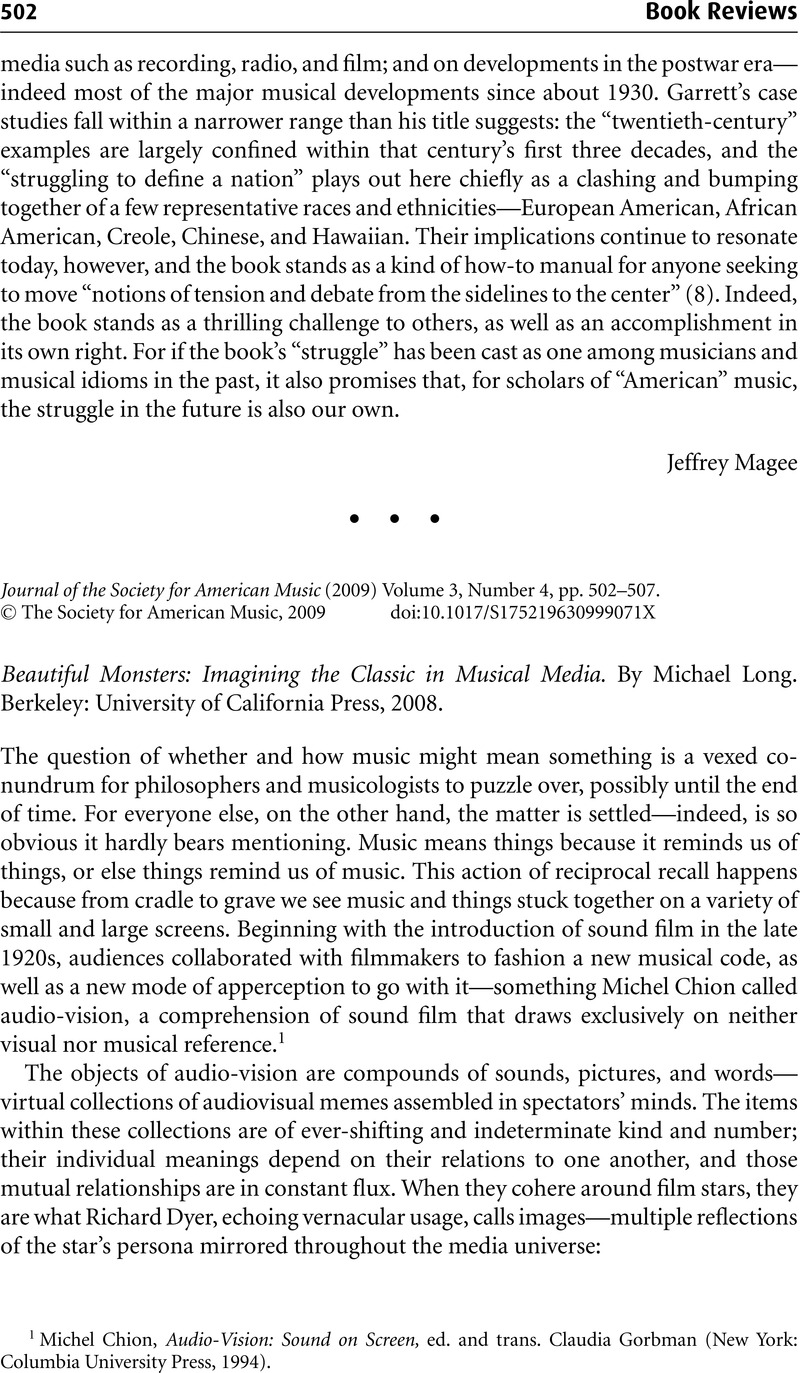No CrossRef data available.
Published online by Cambridge University Press: 15 October 2009

1 Chion, Michel, Audio-Vision: Sound on Screen, ed. and trans. Gorbman, Claudia (New York: Columbia University Press, 1994)Google Scholar.
2 Dyer, Richard, Heavenly Bodies: Film Stars and Society, 2nd ed. (New York: Routledge, 2004), 2–3Google Scholar.
3 Hoberman, J., The Dream Life: Movies, Media, and the Mythology of the Sixties (New York: New Press, 2003)Google Scholar; O'Brien, Geoffrey, The Phantom Empire (New York: W. W. Norton, 1993)Google Scholar.
4 Mailer, Norman, “Superman Comes to Supermarket,” in Time of Our Time (New York: Modern Library, 1999), 343–83Google Scholar.
5 See especially Rogin, Michael, Ronald Reagan, the Movie, and Other Episodes in Political Demonology (Berkeley: University of California Press, 1987)Google Scholar.
6 Adorno, Theodor, “On the Fetish Character in Music and the Regression of Listening,” in The Culture Industry: Essays on Mass Culture, trans. Bernstein, J. M. (London: Routledge, 1991), 51Google Scholar.
7 David St. Hubbins [Michael McKean], This Is Spinal Tap, dir. Rob Reiner (MGM Home Entertainment 1000973, 1984, 2000).
8 Gorbman, Claudia, Unheard Melodies: Narrative Film Music (Bloomington: Indiana University Press, 1987)Google Scholar.
9 John Lennon, quoted in Wicke, Peter and Fogg, Rachel, Rock Music: Culture, Aesthetics, and Sociology (Cambridge: Cambridge University Press, 1990), 23CrossRefGoogle Scholar.